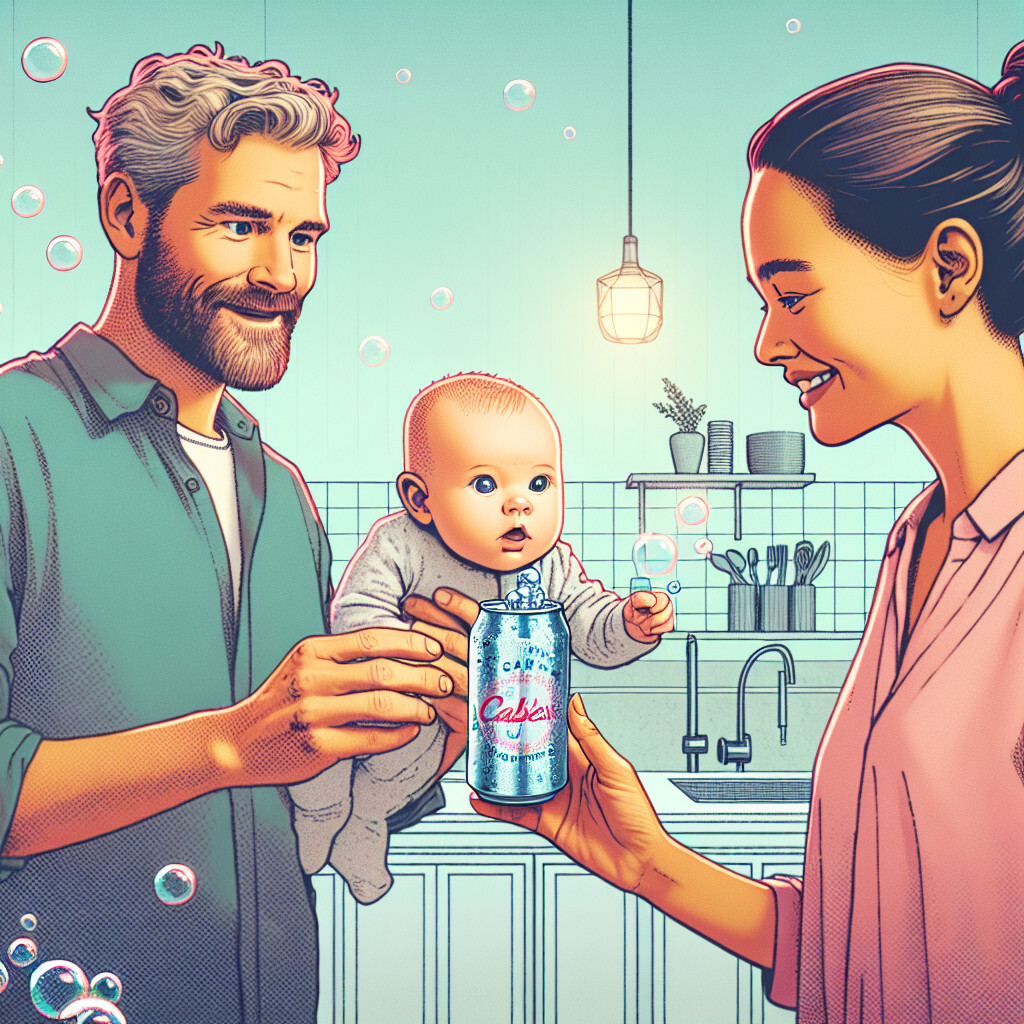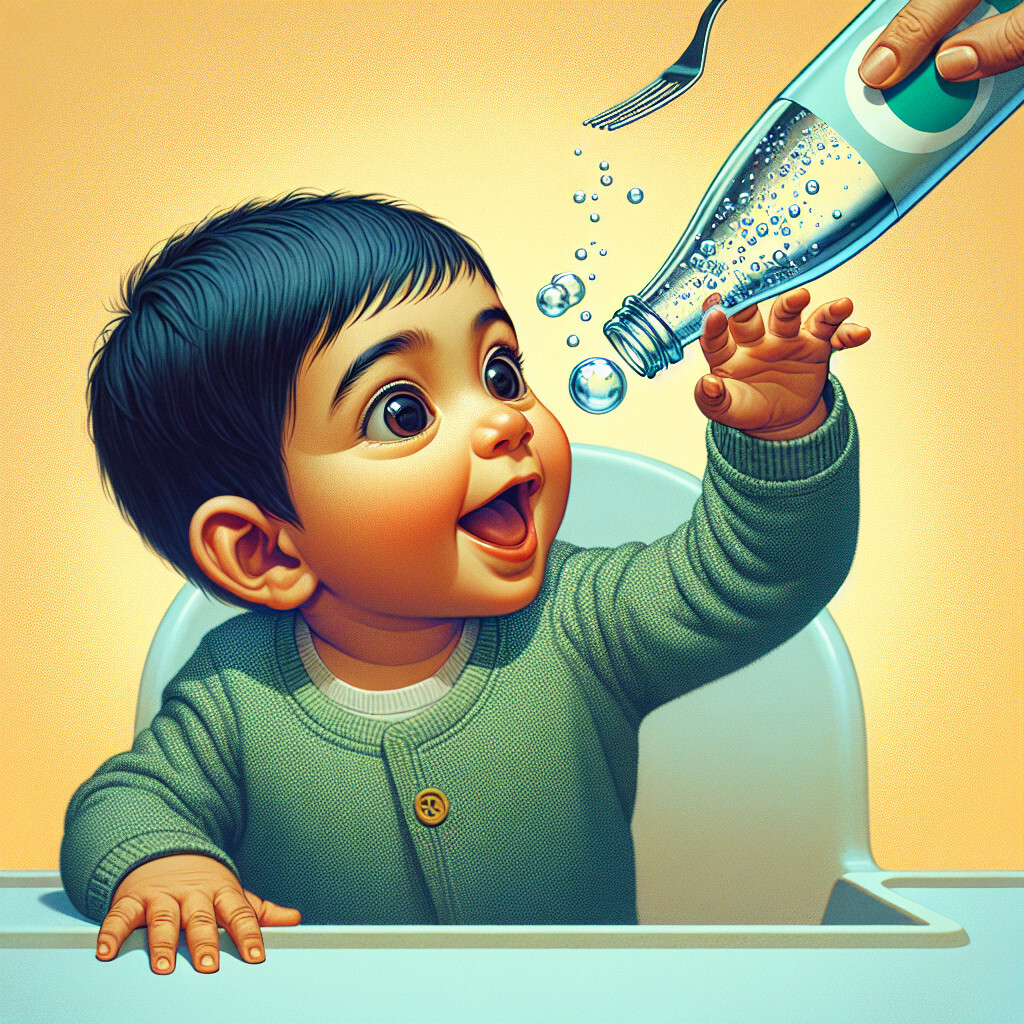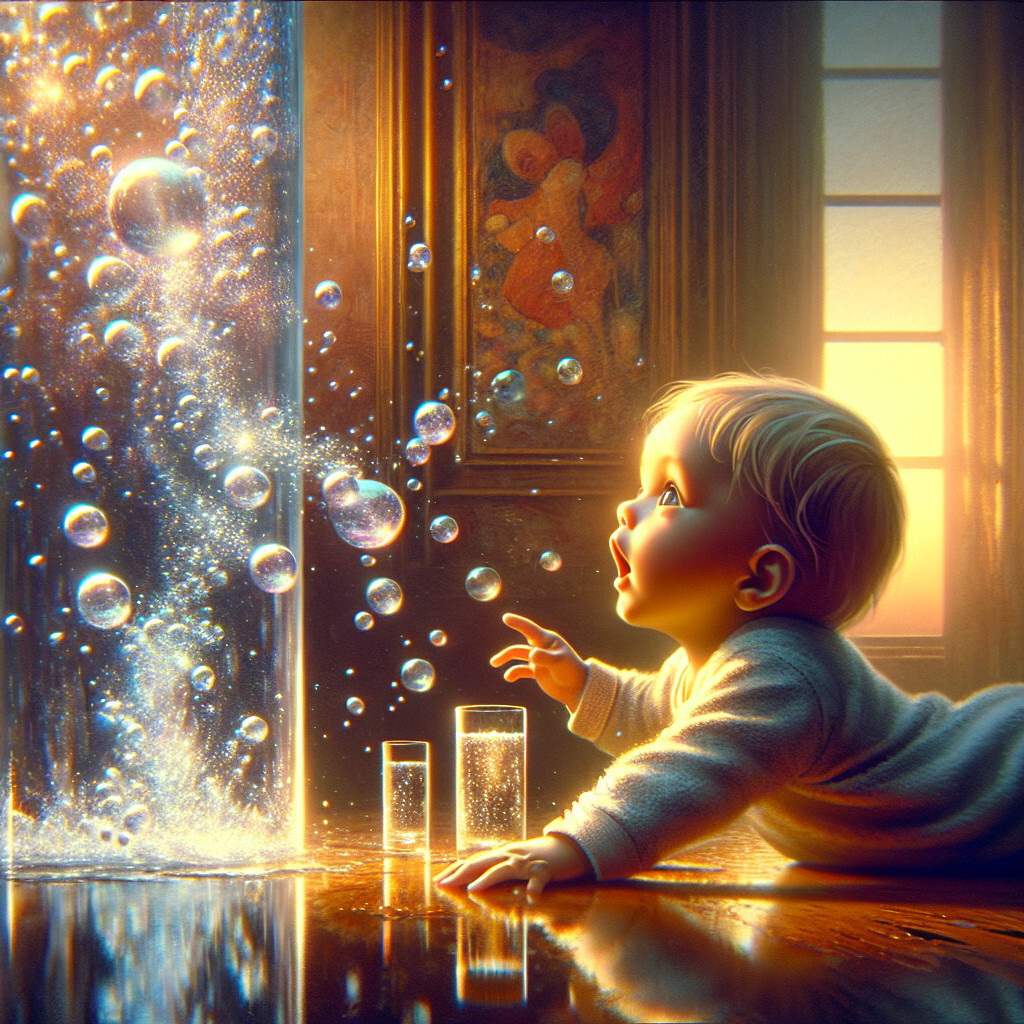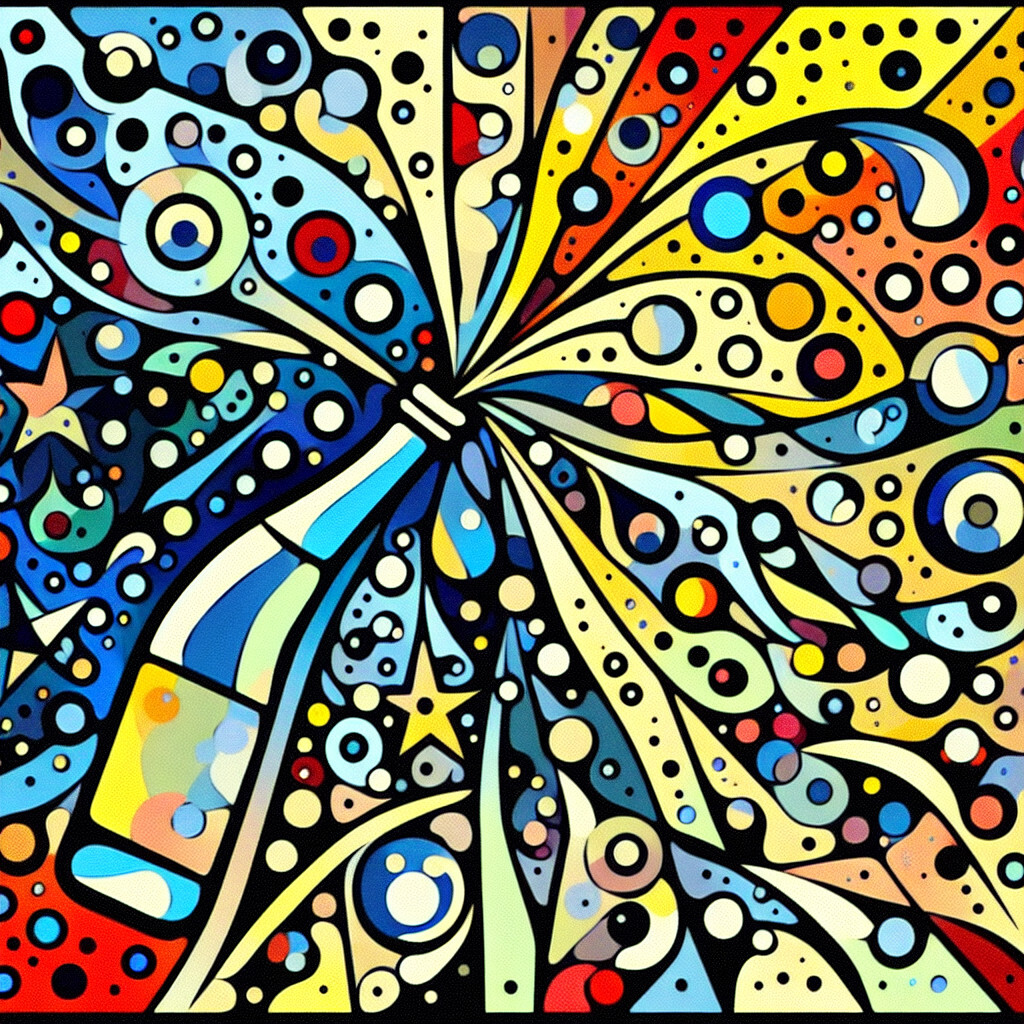-
Table of Contents
“Sparkling Water: Not a Baby’s First Choice!”
Introduction

Babies can technically drink sparkling water, however, it is not recommended. Sparkling water contains carbonation which can cause gas and bloating in babies, leading to discomfort and potential digestive issues. Additionally, it lacks the necessary nutrients found in breast milk, formula, or even plain water that are essential for a baby’s growth and development. Therefore, while not harmful in small amounts, it is generally advised to avoid giving babies sparkling water.
Understanding the Effects of Sparkling Water on Babies
Understanding the effects of sparkling water on babies is a topic of interest for many parents, especially those who are health-conscious and want to provide the best for their little ones. Sparkling water, also known as carbonated water, is a popular beverage choice among adults due to its refreshing taste and perceived health benefits. However, when it comes to babies, the question arises: can babies drink sparkling water?
The answer to this question is not as straightforward as one might think. While sparkling water is not inherently harmful, it is not recommended for babies. There are several reasons for this, the first being the carbonation process. Sparkling water is created by dissolving carbon dioxide under pressure, which results in the formation of carbonic acid. This gives the water its characteristic fizz and tangy taste. However, this carbonic acid can potentially irritate a baby’s immature digestive system, leading to discomfort and even mild acid reflux.
Moreover, the bubbles in sparkling water can cause bloating and gas, which can be particularly uncomfortable for babies. Their digestive systems are still developing and are not equipped to handle the excess gas produced by the carbonation. This can lead to increased fussiness, burping, and even colic in some cases.
Another reason to avoid giving sparkling water to babies is the lack of nutrients. Unlike breast milk or formula, which are packed with essential nutrients that babies need for growth and development, sparkling water provides no nutritional value. It is essentially empty calories, and filling a baby’s tiny stomach with sparkling water could potentially displace more nutritious foods and beverages.
Furthermore, while sparkling water is typically free of sugars and artificial sweeteners, some brands do add these ingredients for flavor. Consuming these added sugars can lead to unhealthy weight gain and tooth decay, even in very young children. Therefore, it is always important to read the label before giving any new food or drink to your baby.
It’s also worth noting that the American Academy of Pediatrics advises against giving babies any type of water before they are six months old. This is because water can interfere with the body’s ability to absorb the nutrients in breast milk or formula. After six months, small amounts of water can be introduced, but it should be plain, fluoride-free water and not sparkling water.
In conclusion, while sparkling water is not inherently harmful, it is not the best choice for babies. Their developing digestive systems are not equipped to handle the carbonation, and the lack of nutrients in sparkling water could potentially displace more nutritious foods and beverages. Instead, stick to breast milk or formula for babies under six months, and introduce small amounts of plain, fluoride-free water after that. As always, if you have any concerns about your baby’s diet, it is best to consult with a pediatrician or a registered dietitian. They can provide personalized advice based on your baby’s age, growth, and development.
Can Sparkling Water Replace Regular Water for Babies?
The question of whether babies can drink sparkling water is one that has been asked by many parents. This is especially true for those who are looking for alternatives to regular water for their little ones. However, before making any changes to your baby’s diet, it is crucial to understand the potential implications and effects that such a change could have on their health.
Sparkling water, also known as carbonated water, is a popular beverage among adults. It is essentially water into which carbon dioxide gas has been dissolved under pressure, resulting in a fizzy drink. While it is generally considered safe for adults, the situation is different when it comes to babies.
The primary concern with giving sparkling water to babies is the high level of carbonation. This can lead to a build-up of gas in the baby’s stomach, causing discomfort, bloating, and potentially even colic. Babies have immature digestive systems that are not equipped to handle the excess gas produced by carbonated beverages. This can result in discomfort and crying, which is distressing for both the baby and the parents.
Moreover, sparkling water can also be more acidic than regular water due to the carbonation process. This acidity can potentially harm the baby’s developing teeth and delicate stomach lining. While the risk is relatively low, it is still a factor that parents should consider.
Another point to consider is that sparkling water does not offer any additional nutritional benefits over regular water. Babies need a balanced diet to grow and develop properly, and water plays a crucial role in this. It helps in digestion, absorption of nutrients, and maintaining body temperature. While sparkling water can hydrate just as effectively as regular water, it does not provide any extra nutrients that your baby needs.
Furthermore, introducing sparkling water at a young age could potentially set up unhealthy drinking habits later in life. Babies who become accustomed to the fizzy sensation of sparkling water may develop a preference for carbonated beverages, which could lead to an increased consumption of sugary drinks in the future. This could, in turn, increase the risk of obesity and other health problems.
In conclusion, while sparkling water is not inherently harmful to babies, it is not the best choice for their hydration needs. The potential for discomfort due to gas build-up, the risk of damage to their developing teeth and stomach lining, and the lack of additional nutritional benefits make it a less than ideal substitute for regular water.
It is always recommended to consult with a pediatrician or a healthcare professional before introducing any new foods or beverages into your baby’s diet. They can provide personalized advice based on your baby’s age, health, and nutritional needs. As a general rule, it is best to stick with breast milk or formula for babies under six months of age, and introduce water gradually after that. Regular water, free from any additives or carbonation, is the safest and most beneficial choice for your baby’s hydration needs.
The Pros and Cons of Giving Sparkling Water to Babies
Sparkling water, also known as carbonated water, has gained popularity in recent years as a refreshing, calorie-free alternative to sugary drinks. While adults and older children may enjoy the fizzy sensation of sparkling water, the question arises whether it is suitable for babies. This article will explore the pros and cons of giving sparkling water to babies, providing a balanced perspective on this topic.
On the positive side, sparkling water is free from sugars, artificial sweeteners, and other additives found in many commercial beverages. This makes it a healthier choice compared to sugary drinks, which can contribute to tooth decay and obesity. Moreover, sparkling water is hydrating, just like still water. It can help meet a baby’s daily fluid requirements, especially in hot weather or when the baby is unwell and needs extra fluids.
However, despite these benefits, there are several reasons why sparkling water may not be the best choice for babies. Firstly, the carbonation in sparkling water can cause gas and bloating, leading to discomfort and fussiness in babies. Their digestive systems are still developing and may not handle the bubbles in sparkling water as well as an adult’s system can. This could potentially lead to colic, a condition characterized by severe, often fluctuating pain in the abdomen that is caused by the formation or passage of gas.
Secondly, while sparkling water is not inherently harmful, it is also not nutritionally beneficial for babies. Babies under six months should ideally be exclusively breastfed or formula-fed, as these provide all the necessary nutrients for their growth and development. For babies older than six months, while they start to consume solid foods, breast milk or formula should still be their primary source of nutrition. Water, whether still or sparkling, should only be introduced gradually and in small amounts, as it can fill up a baby’s small stomach and displace the intake of nutrient-rich foods or milk.
Thirdly, the acidity in sparkling water could potentially harm a baby’s teeth. Sparkling water is more acidic than still water due to the carbonation process. While it is less acidic than soft drinks or fruit juices, frequent exposure to any acidic drinks can contribute to tooth erosion, especially in babies whose teeth enamel is still developing and is more susceptible to acid attacks.
Lastly, the sensation of drinking sparkling water can be quite intense for babies who are not used to it. The bubbles can cause a tickling sensation in the throat and stomach, which might be uncomfortable for them. This could potentially discourage them from drinking fluids, which is not desirable, especially in hot weather or when they are unwell.
In conclusion, while sparkling water is not harmful per se, it may not be the best choice for babies due to potential digestive discomfort, lack of nutritional value, potential for tooth erosion, and the unfamiliar sensation it may cause. As always, it is recommended to consult with a pediatrician or a registered dietitian before introducing any new foods or drinks to a baby’s diet. They can provide personalized advice based on the baby’s age, growth, and development, ensuring that they receive the best possible nutrition for their needs.
Debunking Myths: Is Sparkling Water Safe for Babies?
There has been a growing trend in recent years towards healthier beverage choices, with sparkling water gaining popularity as a refreshing, calorie-free alternative to sugary drinks. This shift has led to a surge in questions from parents about the safety of sparkling water for their little ones. Can babies drink sparkling water? This question, while seemingly simple, has sparked a myriad of opinions and debates. This article aims to debunk myths and provide clarity on the subject.
Firstly, it is important to understand what sparkling water is. Also known as carbonated water, it is simply water into which carbon dioxide gas has been dissolved under pressure. This process gives the water its characteristic bubbles and fizz. It is generally considered safe for adults, but what about for babies?
The primary concern with giving sparkling water to babies is the potential for gas and bloating. The carbonation in sparkling water can cause a build-up of gas in the stomach, leading to discomfort and potential complications such as colic in babies. Babies have immature digestive systems that are still developing, making them more susceptible to gas-related issues. Therefore, it is generally recommended to avoid giving sparkling water to babies to prevent these potential problems.
Another concern is the acidity of sparkling water. While it does not contain sugar or calories, sparkling water is more acidic than regular water due to the carbonation process. This acidity can potentially harm a baby’s developing teeth and delicate stomach lining. Although the risk is relatively low, it is still a factor to consider when deciding whether to give sparkling water to your baby.
Moreover, it is crucial to remember that water, in general, is not recommended for babies under six months of age. This is because their primary source of hydration and nutrition should come from breast milk or formula. Introducing water too early can fill up a baby’s small stomach, leaving less room for the essential nutrients they need from milk. This guideline applies to all types of water, including sparkling water.
However, it’s worth noting that not all sparkling waters are created equal. Some brands add sodium, artificial sweeteners, or other additives to their products. These additions can be harmful to babies, as their kidneys are not fully developed and may struggle to process these substances. Therefore, if you do decide to give your baby sparkling water, it is essential to choose a brand that is free of any additives.
In conclusion, while sparkling water is not inherently harmful, it is not the best choice for babies due to potential gas-related issues, its acidity, and the possibility of added harmful substances. The best course of action is to stick with breast milk or formula for babies under six months and introduce small amounts of regular water after that age. As always, if you have any concerns or questions about your baby’s diet, it is best to consult with a healthcare professional. They can provide personalized advice based on your baby’s specific needs and development.
Q&A
1. Question: Can babies drink sparkling water?
Answer: No, it’s not recommended for babies to drink sparkling water due to its acidity and carbonation which can upset their sensitive digestive systems.
2. Question: What age can a child start drinking sparkling water?
Answer: It’s generally safe for children to start drinking sparkling water around the age of 2, but it should be given in moderation.
3. Question: Why is sparkling water not suitable for babies?
Answer: Sparkling water is not suitable for babies because it contains carbonation and often added flavors or minerals, which can upset a baby’s stomach and potentially harm their developing teeth.
4. Question: Can sparkling water replace regular water in a baby’s diet?
Answer: No, sparkling water should not replace regular water in a baby’s diet. Babies need plain water for hydration, and too much sparkling water can lead to bloating and indigestion.
Conclusion
In conclusion, it is not recommended for babies to drink sparkling water due to its acidity and carbonation which can cause stomach discomfort and harm developing teeth.





